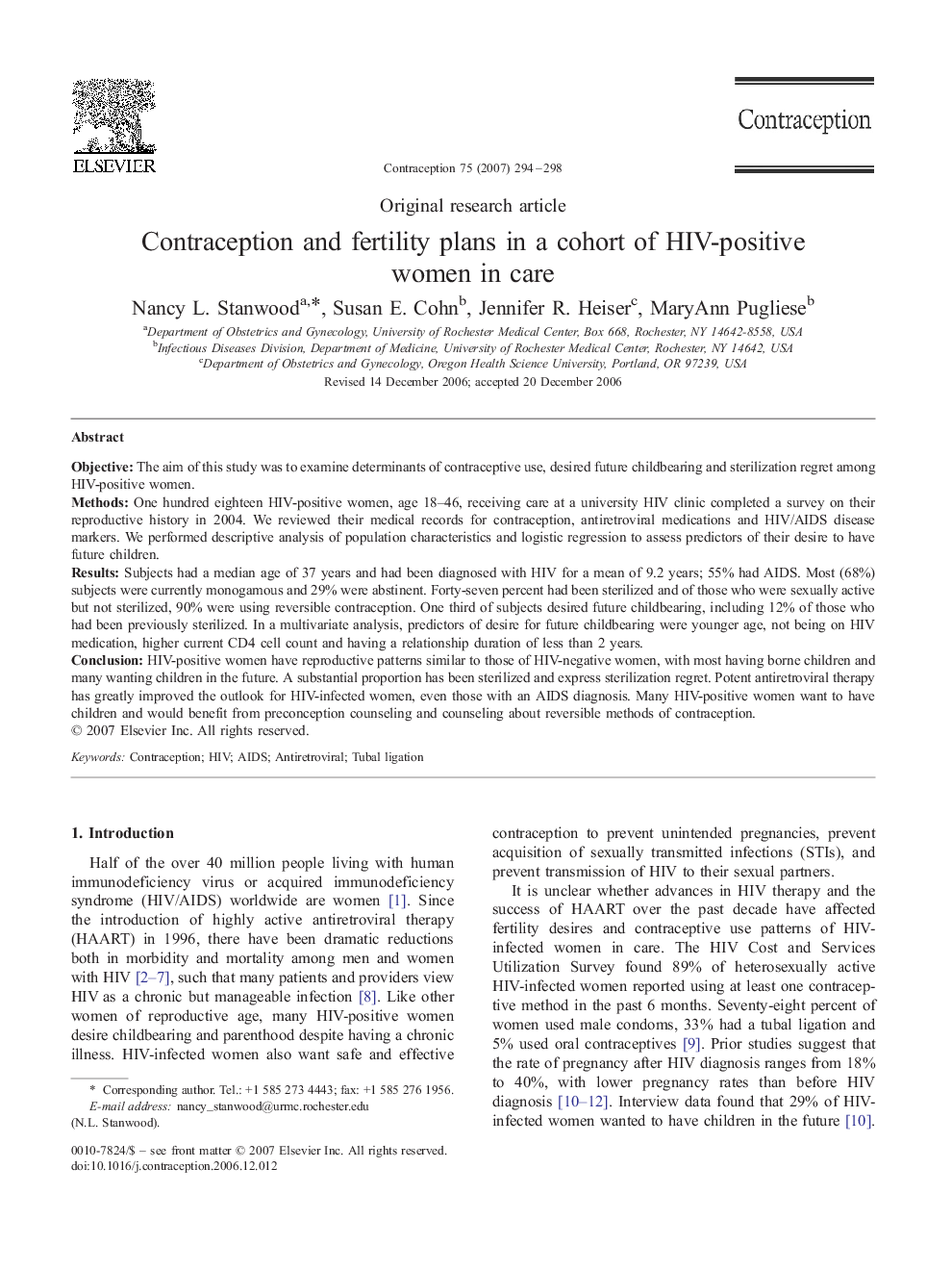| Article ID | Journal | Published Year | Pages | File Type |
|---|---|---|---|---|
| 3915330 | Contraception | 2007 | 5 Pages |
ObjectiveThe aim of this study was to examine determinants of contraceptive use, desired future childbearing and sterilization regret among HIV-positive women.MethodsOne hundred eighteen HIV-positive women, age 18–46, receiving care at a university HIV clinic completed a survey on their reproductive history in 2004. We reviewed their medical records for contraception, antiretroviral medications and HIV/AIDS disease markers. We performed descriptive analysis of population characteristics and logistic regression to assess predictors of their desire to have future children.ResultsSubjects had a median age of 37 years and had been diagnosed with HIV for a mean of 9.2 years; 55% had AIDS. Most (68%) subjects were currently monogamous and 29% were abstinent. Forty-seven percent had been sterilized and of those who were sexually active but not sterilized, 90% were using reversible contraception. One third of subjects desired future childbearing, including 12% of those who had been previously sterilized. In a multivariate analysis, predictors of desire for future childbearing were younger age, not being on HIV medication, higher current CD4 cell count and having a relationship duration of less than 2 years.ConclusionHIV-positive women have reproductive patterns similar to those of HIV-negative women, with most having borne children and many wanting children in the future. A substantial proportion has been sterilized and express sterilization regret. Potent antiretroviral therapy has greatly improved the outlook for HIV-infected women, even those with an AIDS diagnosis. Many HIV-positive women want to have children and would benefit from preconception counseling and counseling about reversible methods of contraception.
